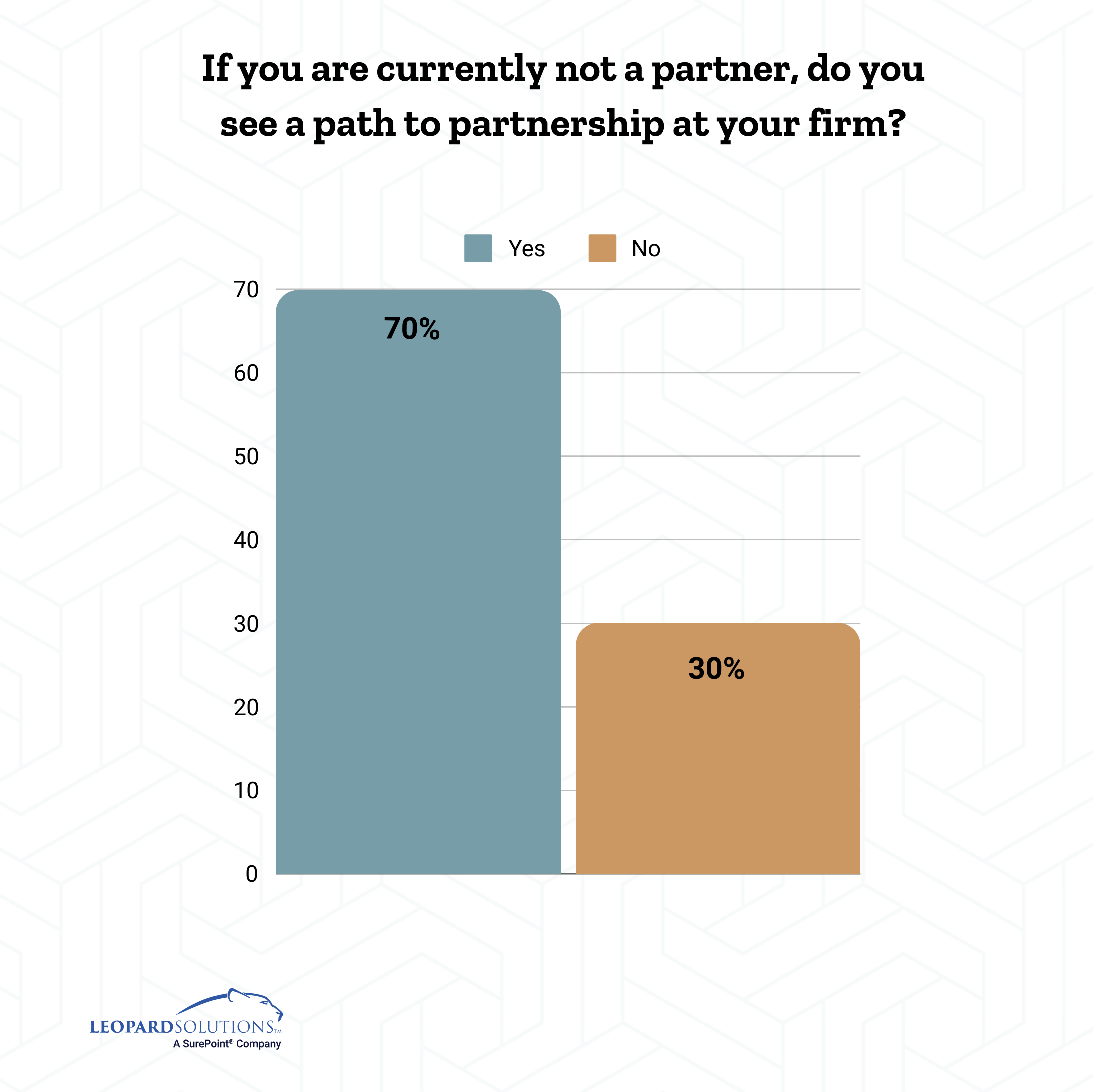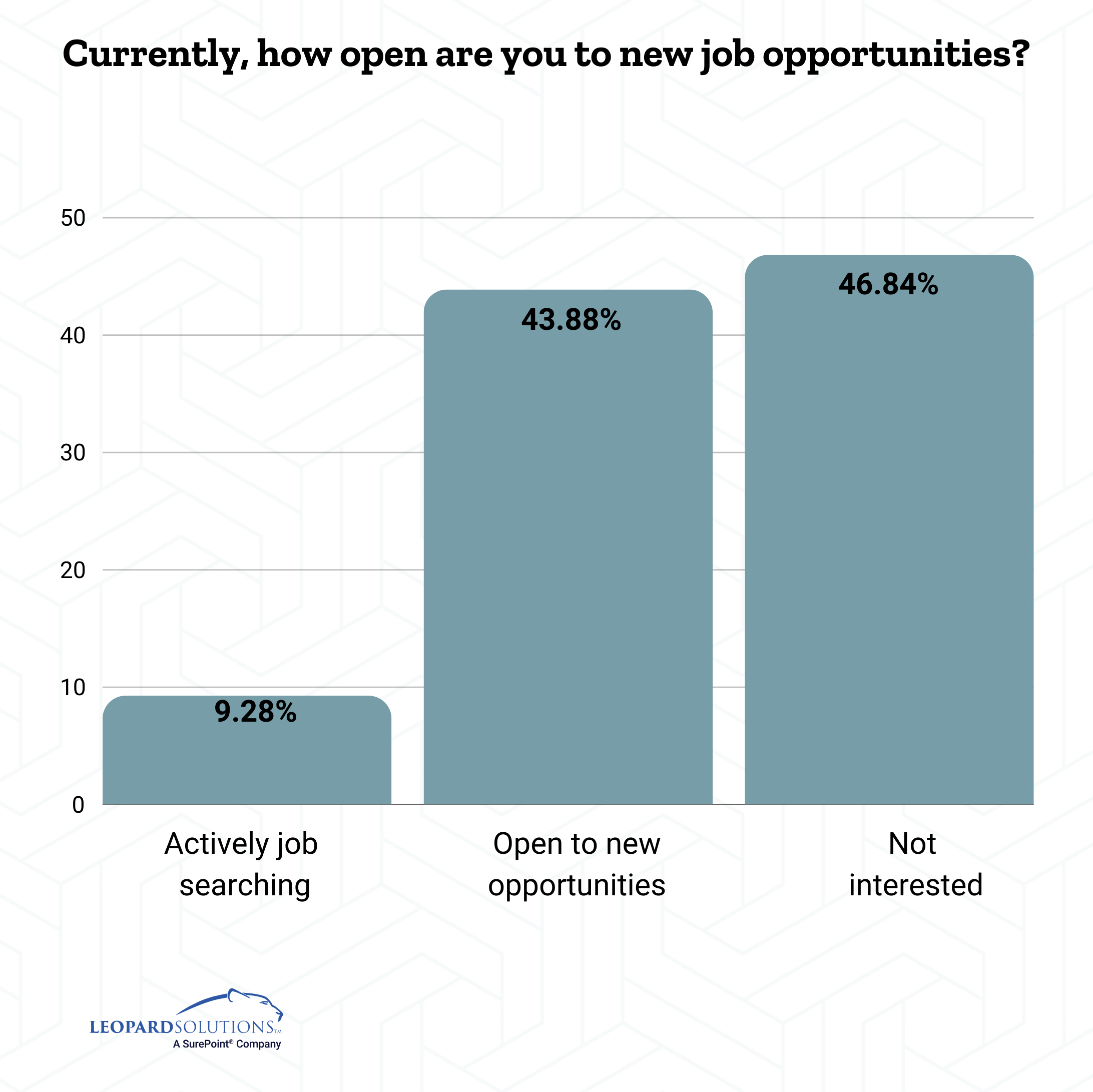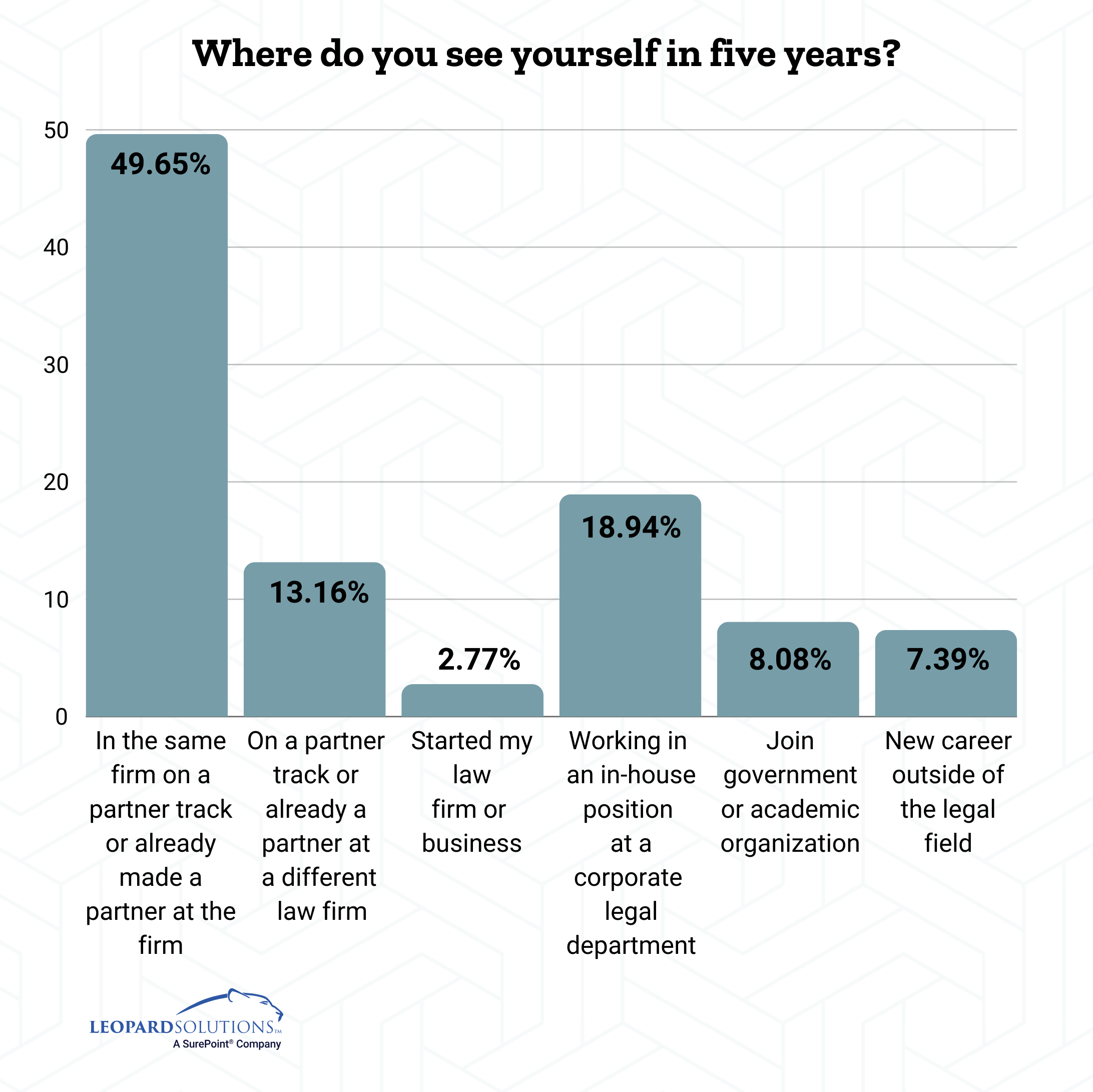The 2024 Diversity Survey, conducted by Leopard Solutions, a Surepoint company, in collaboration with Above the Law, exposed exploitative practices within firms and a lack of follow-through on initiatives to enhance the quality of life for lawyers from underrepresented backgrounds. Further details can be found in our previous article. Despite the numerous challenges faced by people of color in BigLaw, the survey also revealed their unwavering determination to persevere and pursue the traditional path to partnership.
When asked about their career goals upon joining an Am Law 200 firm, a staggering 64% of respondents aimed to make partners, surpassing the second-highest response, “gain experience working for corporate clients and then move in-house,” which garnered 22%. This significant difference in career aspirations highlights the urgent need for change and support for underrepresented lawyers in their pursuit of partnership.

In addition to aspiring for the partner track, a plurality of participants (65%) indicated that their goals remained unchanged upon leaving law school and entering the workforce. Even though 86% of participants were not currently partners, more than two-thirds (70%) perceived a viable path to partnership at their current firm. These percentages may seem high, considering some concerns about cultural acceptance in the open-ended responses.

Not only did most of the diverse lawyers remain committed to their career trajectory, undeterred by challenges, but they also reinforced this determination through their expected tenure. Seventy-nine percent of respondents ideally wished to stay at an Am Law 200 firm for 5-7 years (15%), until achieving partnership (26%), or until retirement (38%). This marked a significant difference from the Gen Z cohort, which, worth noting, also included lawyers from diverse backgrounds, who exhibited more transient behavior and were not hesitant to lateral. Exactly one-third of Gen Z survey participants (33%) anticipated staying at their current firm for up to two years.

As for the diversity survey respondents who aspired to partnership and, by extension, longer tenures, they tended to be older. Only 43% of junior associates (1-2 years practicing) who answered the question saw making partners as their ultimate goal. In contrast, the median for current partner participants, who initially aimed for partnership upon joining an Am Law firm, was 76% (a third higher). From this, one could infer that the adherence to traditional career tracks was more of a generational shift than a reflection of any perceived complacency along ethnic lines. Perhaps the digitally native lawyers, shaped by the emergence of the gig economy, feel more empowered to carve unconventional paths with entrepreneurship as their guiding principle, irrespective of racial obstacles.
When queried about their interest in new opportunities, nearly half (47%) indicated a lack of interest, even with the option to express openness to new opportunities. This may appear somewhat complacent, especially considering that only 51% expressed satisfaction with their current role. However, it’s crucial to understand that more than one in four respondents stated a preference to remain in BigLaw if they were to leave their current role, opting to transition to another Am Law 200/large law firm. This insight underscores the importance of understanding individual career aspirations, making each respondent’s perspective a valuable part of the research process.

Additionally, the survey probed the timeless post-graduation question: where do you envision yourself in five years? A significant 63% of minority lawyers responded with variations of being on a partner track or already having attained partnership status within their current or at a different law firm. This underscores the enduring appeal of the traditional trajectory in shaping a legal career within this surveyed population. It suggests that firms are doing something right to instill such confidence in the institution.

Credit is due to firms that offer robust DEI initiatives, as noted by at least a quarter of participants. These initiatives include formal mentoring programs (68%), professional skills development (58%), career planning for women and minorities (37%), and diversity incorporated into performance management plans (27%).
Don’t miss out on the comprehensive analysis of the survey results. Watch the replay of the webinar discussion.






